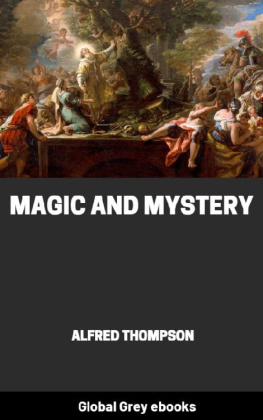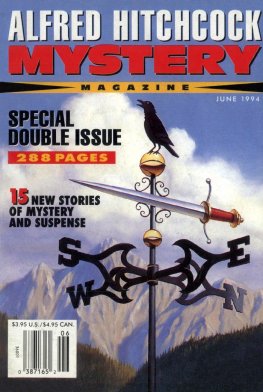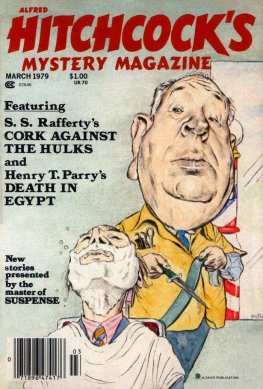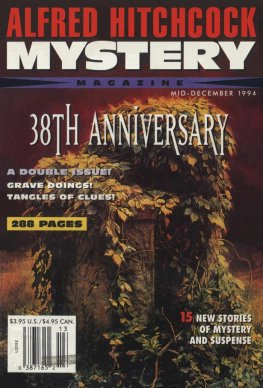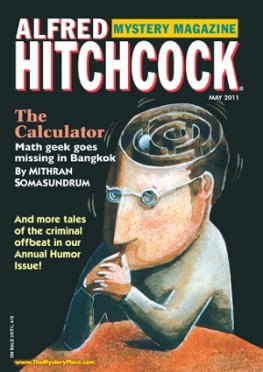Alfred Thompson - Magic and Mystery
Here you can read online Alfred Thompson - Magic and Mystery full text of the book (entire story) in english for free. Download pdf and epub, get meaning, cover and reviews about this ebook. year: 2019, publisher: Global Grey ebooks, genre: Religion. Description of the work, (preface) as well as reviews are available. Best literature library LitArk.com created for fans of good reading and offers a wide selection of genres:
Romance novel
Science fiction
Adventure
Detective
Science
History
Home and family
Prose
Art
Politics
Computer
Non-fiction
Religion
Business
Children
Humor
Choose a favorite category and find really read worthwhile books. Enjoy immersion in the world of imagination, feel the emotions of the characters or learn something new for yourself, make an fascinating discovery.
- Book:Magic and Mystery
- Author:
- Publisher:Global Grey ebooks
- Genre:
- Year:2019
- Rating:3 / 5
- Favourites:Add to favourites
- Your mark:
- 60
- 1
- 2
- 3
- 4
- 5
Magic and Mystery: summary, description and annotation
We offer to read an annotation, description, summary or preface (depends on what the author of the book "Magic and Mystery" wrote himself). If you haven't found the necessary information about the book — write in the comments, we will try to find it.
Magic and Mystery — read online for free the complete book (whole text) full work
Below is the text of the book, divided by pages. System saving the place of the last page read, allows you to conveniently read the book "Magic and Mystery" online for free, without having to search again every time where you left off. Put a bookmark, and you can go to the page where you finished reading at any time.
Font size:
Interval:
Bookmark:
MAGIC AND MYSTERY
POPULAR HISTORY
BY
ALFRED THOMPSON
Magic and Mystery: Popular History By Alfred Thompson.
This edition was created and published by Global Grey
GlobalGrey 2019
Get more free ebooks at

globalgreyebooks.com
General View of SupernaturalismFounded on Fear and HopePresent-day Superstition.
Superstition in a nation depends very much upon climate, temperament, religion, and occupation. Notions entertained of supernatural beings or things, though generally based upon one broad feature common to all countries, differ so essentially respecting the form, character, habits, and powers of these beings that they appear to have been drawn from sources widely removed. The advance of knowledge and the truths of evolution have almost convinced us that belief in the supernatural (unrevealed) is nothing but the creation of the human brain, impressed upon the imagination of our ancestors at periods when such impressions were likely to be strong and permanent, and transmitted within the iron- bound certainty of the laws of heredity. Legends have forever been beheld through different prejudices and impressions. They have constantly changed with the media and vistas through which they have been viewed. Hence their different shape, character, and attributes in different countries, and the frequent absence of rational analogy with respect to them even in the same. Where now are the multitudinous creations of the old Greek and Roman mythologies? Where are their Lares, Demons, Penates, their Fauns, Satyrs, Nymphs, Dryads, Hamadryads, Gods, and Goddesses? And yet the peasantry of the two most enlightened nations of antiquity were so firmly fixed in a belief of their distinct and individual existence that the worship of them formed an essential part of their religions. Who now believes in a Faun or a Dryad? They melted into what they werenothingbefore the lustre of Christian knowledge; but only, alas! to be substituted by newer notions and imagery, purer it may be, but superstitious undoubtedly. Fear and hope are the feelings which make man superstitious. He doubts as to his immortality, his intellect is limited, and his superstition varies in proportion to his preparedness for death. Every truth is abused and perverted by mans moral delinquencies, and the consequence is that an idle fear of ghosts and apparitions and future states is a resultant of the doctrine of our immortality. The old monsters of the mythologies disappeared before reason and religion. It is the question of the hour what will succeed the Christianity which needs reform, or else must be "writ down" a failure.
This is said to be an age of Materialism, and modern science boasts to have exploded old superstitious beliefs. Yet it is curious how constantly old traditions and fancies crop up amid the most prosaic surroundings of modern existence. There are certainly many people at the present day whose belief in invisible agencies is untouched by all the learning of the ages. Educated persons will attend spirit-rapping seances and cultivate many small superstitious observances. To spill salt, or to sit down thirteen at table, is considered as objectionable in this enlightened century as it ever was in what we are pleased to describe as the "Dark Ages." The appearance of two or three magpies, hares crossing ones path, the cracking of furniture, the howling of dogs, putting on the left shoe first, the ticking noise of the insect called the death-watch in rotten wood, and a hundred other occurrences, have lost none of the pagan pungency which makes them fit to be believed in. We call our superstitions by different names; but we cling to them still. Matters that admit of no explanation must always puzzle and make anxious. A strange fascination hangs about those subjects upon which no consistent theory has ever been formedsubjects the nerves and fibres of which have never yet been laid bare by the forceps and the scalpels of microscopic science. It is to a survey of some such subjects that the subsequent chapters of this little work will be devoted.
Wonder-working in the FutureConnection of Magic with Government and ReligionThe Magi and Mystery-menSoothsaying and SorceryThe Chinese "Descending Pencil""Black"and "White" Magic "Odic" "Psychic," and "Occult" ForcesDeception by Art and ScienceAcousticsHydrostaticsMechanicsOpticsThe "Middleman Theory"Past and Present CredulitySpiritualism and Salvationism.
The effects of electricity on the animal system and on the atmosphere have much to answer for in our superstitious observances. Animal magnetism, which is as yet an inchoate subject, contains "the power and potency" of future wonder-working. As among the African and North American tribes at the present day, a great portion of the magic of our forefathers, which was called medicine, lay in working on the fears and imagination of the patients by means of pretended charms and inspirations. Faith-healing beliefs in these times are an illustration, to a large degree, of mediaeval magic. The Arabian school of medicine, which became very eminent while the Saracens were masters of Spain, were well acquainted with vegetable and metallic remedies against diseases. Their knowledge passed on to the chemists, or rather alchemists, of the Dark Ages, whose researches brought to light the great value of the metals in the hands of the physician, and induced absurd attempts to transmute baser minerals to gold, or to find out the panacea for all disorders, or the elixir for the perpetual prolongation of life. The history of magic embraces that of the governments and superstitions of ancient times, of the means by which they maintained their influence, of the assistance which they derived from the arts and sciences, and from knowledge of the powers and phenomena in nature. The tyrants of antiquity usually founded their sovereignty upon supernatural influence, and ruled with the delegated authority of heaven. The prince, the priest, and the sage were leagued in a dark conspiracy to deceive and enslave their species. Manin ignoranceever the slave of spiritual despotism, willingly bound himself in chains forged by the gods and unseen powers. Accordingly, the Black Art, which was a comprehensive system of imposture, nurtured upon fear-forcesinasmuch as its professors were supposed to be in league with the devilwas greatly favoured in early ages. An acquaintance with the motions of the heavenly bodies and the variations in the state of the atmosphere enabled its possessor to predict astronomical and meteorological phenomena with a tolerable accuracy. This could not fail to invest him with a divine character. The power of prophesying fire from the heavens could be regarded only as a gift from the deities. Competency in rendering the human body insensible to fire was an irresistible instrument of imposture; and in the combinations of chemistry and the influence of drugs and soporific embrocations on the human frame the ancient magicians found their most available resources. Fables and miracles of former times are a store-house of evidence in regard to the advanced scientific acquirements of the mystery-men. The secret use which was made of discoveries and inventions has prevented many of them from reaching the present time; but, beyond doubt, most branches of knowledge contributed their wonders to the magicians budget.
Magic might be called the science of superstition, or the "philosophy of the unknown," in a sense different from Hartmanns. The Magi, a hereditary caste of Persian priests, first practised it in any systematic form. In the Bible we find soothsaying and sorcery denounced as magic; and the foretelling of the birth of Christ by the Wise Men of the East is a foremost illustration. Now-a-days we find the necromancy of the Greeks the consultation of ghosts for prophecyand the Chinese practice of receiving oracles from mediums and from the "descending pencil" imitated by the Spiritualists. Shakespeare introduces
Next pageFont size:
Interval:
Bookmark:
Similar books «Magic and Mystery»
Look at similar books to Magic and Mystery. We have selected literature similar in name and meaning in the hope of providing readers with more options to find new, interesting, not yet read works.
Discussion, reviews of the book Magic and Mystery and just readers' own opinions. Leave your comments, write what you think about the work, its meaning or the main characters. Specify what exactly you liked and what you didn't like, and why you think so.

